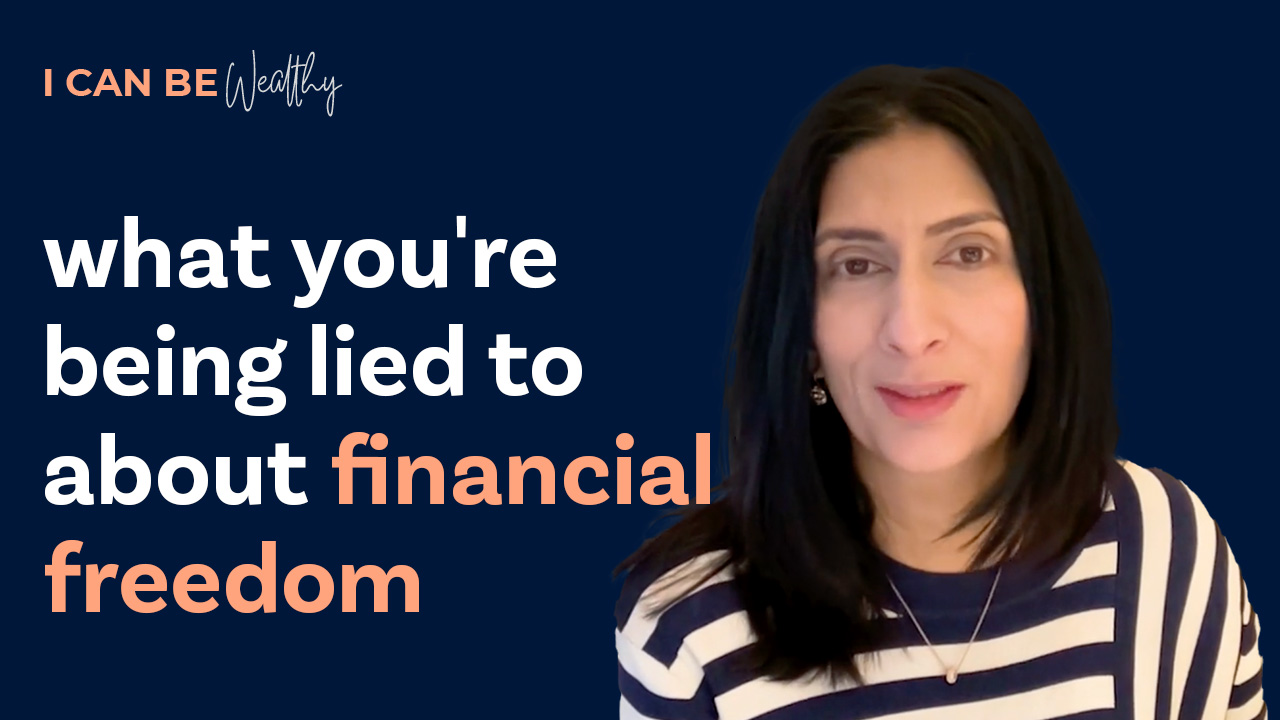Hey everyone, welcome back to the podcast.
I am super excited to have my good mate Craig Budgen with us, who also happens to be a member of our Inkosi Wealth programme.
The reason I thought it would be great to have him as a guest on this podcast is that he and I have exchanged a lot of ideas and notes around the topic of how, as accountants or people with accounting backgrounds, we can use numbers to really tell a story.
One of the magical ingredients of Inkosi Wealth is constantly looking at where different decisions will take you and what the impact of different decisions will be. We’ll discuss the dangers of that, and the pros and cons. Read More
Something that accountants know, love, and trust is spreadsheets, and they can be incredibly powerful for helping you with decision-making – but they can also steer you in the wrong direction if you’re not careful.
We cover:
- Craig’s insight into pro formas & forecasting,
- how spreadsheets can not work as well,
- what to look out for in property investment spreadsheets,
- outperforming property, and
- the recommended framework when taking a deal to your accountant.
Craig’s Insight into Pro Formas & Forecasting
- The old saying goes, “Never let the truth get in the way of a good story.” With statistics, you can make them tell whatever story you want them to tell: you can highlight some and not others.
- So like anything with budgeting or forecasting, it’s all in the assumptions, and sometimes the assumptions get lost by the person who’s looking at the spreadsheet because they’re just looking at the results.
- They’re either thinking, well, that’s good, or that’s not so good, but they’re not taking into account the assumptions or the parameters that the person who built the spreadsheet has used in order to get those numbers.
- It can look really, really promising and really, really good, but in reality, it’s nothing like that. We actually see that all the time.
The Power of Spreadsheets
- From my perspective, the reason I’ve had a love affair with spreadsheets is that they give you a flavour of what’s possible.
- I think that it’s really important, as Craig pointed out, that you understand what assumptions have been made.
- But I also recognise, and I’ve probably heard this more from my husband, John, than anybody else, but I sense it from others: if you’re not from the world of spreadsheets, if you haven’t been part of a world where you’ve had to use them for work or for business, spreadsheets can seem a bit voodoo and complex.
- I think people go wrong by looking at a spreadsheet and feeling a little like it’s voodoo and they don’t fully grasp it, and then just taking what numbers get spit out as the gospel.
- Usually what happens with the spreadsheet is, there are so many numbers on a page that to the uninitiated, it’s just a big jumble of numbers and they just look where they’ve been told to look as opposed to where they really should be looking.
- The big thing that I love about spreadsheets is, if you do them properly, you can use the spreadsheet to scenario-build.
- So you could say, we’re going to use a growth rate of 7.2% here, but let’s say it was 4%. What does that do to the numbers?
- And when you start doing that with the client, that’s to me where the real power is.
- You can work out what a client’s risk threshold or capacity is, and you can dumb down those numbers to more suit their risk levels and get the numbers that they would be happy with.
- The power of spreadsheeting for me is not me doing a spreadsheet for you and then printing that out and going, “There you go,” it’s actually sitting with you and being able to run through all the different scenarios and the changing in numbers happening just like that as opposed to having to go away and do them every time someone says it.
- So the power of spreadsheeting is beyond being able to scenario-build with the client.
What to Look Out for in Property Investment Spreadsheets
- My experience around this is that there are people out there who do a great job of it and others that don’t do so well.
- One of my concerns is regarding younger investors or less experienced investors coming into property: typically I witness that people use spreadsheets and forecasts to paint a very rosy picture of where they’ll be in the future.
- I had a client show me where they had forecast rent increases at 3% year on year over 10 years, and a capital growth rate of 7.2% meaning the price of the property would double in 10 years’ time using the rule of 72.
- But when you look at real-life scenarios, that’s not exactly what happens. What looked like a really rosy picture for these clients – they were thinking, wow, my rent’s going to be that much in 10 years and my loan is going to be down here and the property is going to have doubled in price – but that doesn’t happen.
- Well, it’s happening at the moment because property prices are going through the roof and so are rental. But a good 10 to 12 years before this, properties have kind of done nothing.
- So really, depending on where in that cycle you buy, those rates might be 0, or they might be quite huge.
- The problem is when you’re just looking at a spreadsheet that someone prepares for you, and if you’re just taking the results for granted as being correct, in 10 years’ time you could find yourself in a real poor position or nowhere near where you thought you were going to be.
- By then it’s too late because you’ve wasted 10 years on this strategy, which hasn’t worked.
- The wealth industry has evolved to have lots of offshoots of different property professionals and business professionals that specialise in property. The reality is that they’re really, really good marketers.
- It boils down to your capacity to do good due diligence and look behind the numbers.
- About six years ago, I had a handful of glossy brochures that were all people selling houses and units off the plan, or house and land packages, or buyers agents for towns I’d never heard of – and it was quite confusing.
- Someone brought those to me and asked, “Which one do you go for?”
- And the challenge as an investor is putting all of that aside and doing some actual hard work on determining where you think makes sense to invest and then finding evidence to support or work against that.
- And then secondary, going and finding the deal.
- Projections are a really great way of trying to understand which way to go. Do I go for houses or units? Do I go alternative or traditional?
- But I still feel that the pitfalls that a lot of very vulnerable investors expose themselves to are confusing marketing with the facts, and the ability to discern what’s good and what’s not.
Outperforming Property
- Unless you bought very lately, it’s not so common for property to outperform what you thought it would.
- There’s nothing wrong with the buy and hold strategy, especially if you’re young because you’ve got the power of time on your side and you can ride cycles. So at some stage, you’ll get a decent uplift.
- But those marketers trying to tell you that they can read the market – I’d seriously question that.
- The problem is that you are putting your faith in someone who’s telling you one thing when the reality is, it’s probably something completely different.
- I’m glad that my client came to me and spoke to me about it because we were actually able to talk about a number of scenarios of why that might not happen the way it did.
- I’d encourage everyone to go and talk to their accountant because accountants have got a general grasp of a lot of different things, and they’re usually unbiased.
- Look at your own property, especially if you’ve owned it for a while. If you go into your own property for 10 years, what was it worth 10 years ago and what’s it worth today?
- What happened, and did it happen the way you spreadsheeted it? Probably not, would be my thought.
- Do your due diligence on the assumptions that have been made.
- I think a lot of mum and dad buyers or even small business owner buyers don’t know how to do their due diligence, don’t know the right questions to ask and they don’t know what they should be looking at.
- That’s why it’s really important to get some help outside of the person selling it to you, like a trusted advisor.
- “OK, well this is what they’re telling me. Is it right or wrong? Does it smell right? Does this make sense?”
- A few years ago I was coaching a younger person who was just itching to get their first property deal under their belt. I had so much admiration for them, they worked really hard to scrape together a deposit.
- When we looked at the pro formas or the projections of deals that she was able to afford, they were pretty glossy.
- But the important questions are, “Does it make sense to you? Would you live there? Do those sorts of growth areas make sense with what’s happened in the past?”
- We came to the conclusion that they didn’t, and in the end my general advice to her was, you always want to be buying the best quality real estate deal that you can at the point in time that you want to deploy.
- So for her, the decision was between buying something cheap to get a foot in the door, or waiting another 6 to 12 months until she had a bigger deposit to go for something that was clearly going to give her growth over time.
- She chose the latter, which was fantastic, but I think the dilemma that I hear from a lot of business owners who are maybe in established businesses that are doing relatively well is that they don’t have the time.
- They have so much on their plate that by the time they get to the end of the day, they don’t have the energy to be looking at spreadsheets or doing research.
- If you’re buying, say, local property, this is where talking to other investors, using good quality buyers agents, things like that can make a lot of sense.
- Accountants add value. They can probably smell a rat a mile away because most of us have been around the traps a long time and we understand numbers.
- So when we see those spreadsheets, we can pick up the flaws in something quite quickly.
- It’s not that we know property better than anyone else, because we don’t, but we know numbers really, really well so we can see that the numbers are telling the story.
The Recommended Framework When Taking a Deal to Your Accountant
- Accountants and friends in the industry have lamented with me in the past that they’re always getting asked, “Is this a good deal?”
- That’s such a difficult question to answer and probably one that most accountants don’t want to answer.
- Let’s talk about what makes this a good deal or not. Let’s talk about how much you are spending, the amount you’re borrowing, what the repayments are going to be, what is the rent likely to be?
- What other people are selling at? What are they saying the rent’s going to be? Have you looked at the rents in the area for that type of investment to get an idea of whether or not that’s true?
- Google is your friend with this sort of thing, you can Google rent growth in certain areas and it’ll give you that information – same thing with capital growth.
- It’s about being able to almost formulate your own spreadsheet, even if it’s not in a spreadsheet, but your own idea of what this really will look at.
- And because that’s all numbers, your accountant is really good at that stuff.
- At the end of the day, it’s your decision as to what you think is a good deal; everybody has different risk profiles.
- Some people can’t sleep at night unless their I’s are dotted and their T’s are crossed and other people are completely oblivious, but most people are somewhere in between.
- And so that’s why it has to be your individual decision.
- But if you get the right advice to help you ask the questions and even help you look up the answers to them, at least you can make that decision for yourself based on real numbers, not just on what some marketer has told you might happen in this airy-fairy world in which they particularly live.
- Be careful who you ask for support and advice when it comes to the world of property.
- I’ve dealt with some very well-intentioned financial planners who often want to position themselves as top of the financial advice tree – maybe with the best of intentions, but they also speak very liberally about the topic of property.
- Now whether or not they (1) are qualified to speak about that, or (2) even have any experience are questions that you should be asking.
- I’m always asking accountants and other professionals, “Do you walk your talk? Is this stuff that you actually do?”
- So don’t get me wrong, if you’re working with a financial planner who holds a lot of property or who’s specifically trained in real estate, then that’s a very different thing.
- But I know there are often people who colour outside the lines in terms of expressing opinions and giving advice, so I think that’s something to be really mindful of.
- Accountants are awesome with spreadsheets and numbers, so accountants are a great starting point because they don’t have that sort of bias that maybe other professionals might have.
- There’s no conflict about how they’re remunerated.
- Some financial planners are very numbers-based and it’s not about a product, it’s about planning the numbers and then overlying a product into that.
- Others are like banks and they are product floggers – you shouldn’t be dealing with those people anyway.
- It’s definitely important that you know who you’re dealing with and what they want, what the flavour of the advice is that they’re giving you.
- Is it impartial, is it fact-driven, or is it product-driven?
Final Thoughts
It’s been awesome to have Craig here today and I hope anyone listening to this will be mindful of who they ask advice from and make friends with their accountant when it comes to property decisions.
If you’re a business owner feeling frustrated that despite doing everything right in the property investing playbook and you’re no closer to financial freedom, then head over to www.inkosiwealth.com to learn more about how you can use alternative investments to catapult your investing income and blend strategies to shave decades off your timeline to financial freedom.
If you’re interested in understanding how to create wealth through alternative strategies, please check out my programs, where I help you catapult your investment income and blend strategies to shave decades off your timeline to financial freedom.
Or, you’re welcome to get in touch today, book a call with me, and I would be happy to talk you through it – no obligation!









